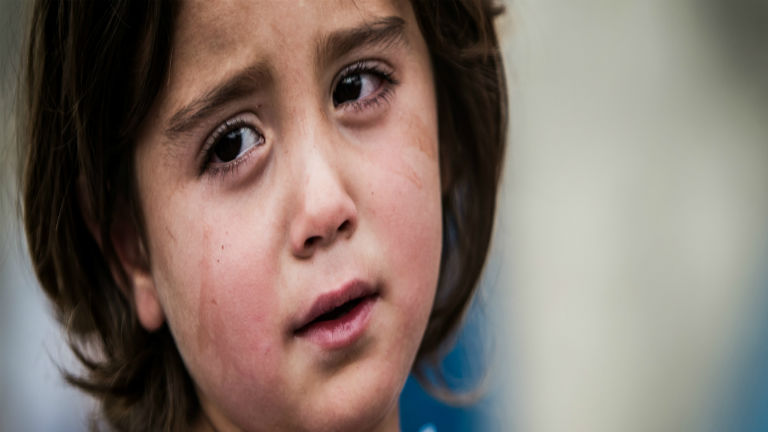UNICEF Ireland intern, Karl Boos, reflects on the fourth anniversary of the Syrian Crisis and the impact it’s had on children.
Sunday the 15th of March 2015 was the 4th anniversary of the on-going conflict in Syria. Over these four years, 2 million Syrian children, have been forced to flee their war torn country to seek refuge in neighbouring states, such as Jordan, Turkey, and Lebanon. Whilst sitting in the comfort of the UNICEF office in Dublin, I began to think what life must be life living in a refugee camp, miles away from familiar surroundings and friends, and often without some of life’s most basic amenities such as food and hospital supplies. I decided to take a closer look at the experiences of Syrian refugees throughout the Middle East.
Before one can even think about what constitutes a refugee camp, it is important to look at the struggle that many of Syria’s refugees have had to go through just to get there. After making the terribly difficult decision to leave their home country, and the life, family, and friends they have built there, potentially for good, the toughest test of their journey is still to come. Families must travel often hundreds of miles to the nearest border, and usually will have to do so at night in order to avoid the fighting. The fact that these people are so willing to take up this physically and emotionally draining, and potentially lethal journey only helps to identify how dangerous it is for them to remain in their homes. If they do manage to complete the journey to the border, and further on to the refugee camp, after registering, they must then settle in to the tent that they will now call home.
One of the most well-known examples of the refugee camps that Syrians are travelling to is the Za’atari camp ion Jordan. Home to over 80,000 Syrian refugees packed into just over 3km of space in the heart of the desert. These tents have become one room homes for families of up to seven people. Sickness is common as disease runs rife, with only limited medical supplies available, and at night, when the temperature drops to below freezing, families do not have appropriate winter clothing, or gas heaters to keep them warm. These are the dreadful conditions that families must get used to living in for the foreseeable future.
The one bright spot about camps, such as Za’atari, is the work that is being done by UNICEF to improve the lives of children. Donors have enabled UNICEF to provide over 100,000 gallons of water per day to the camp, whilst also ensuring that the water remains clean and pure. In addition to this, UNICEF has been able to provide school bags and supplies to over 130,000 children in both camps, and in host families to ensure that even in the most dire conditions, a child’s right to education is not lost. Finally, UNICEF has been instrumental in arranging for Psychosocial Support for children resident in camps, and those staying with host families. These support systems have allowed over 210,000 children to effectively deal with some of the extreme hardships that they have had to deal with. By undertaking this vitally important work, UNICEF is helping to reach out to hundreds of thousands of children throughout these refugee camps, and making their lives that bit easier.
As well as the work performed by UNICEF in this area, it is worth bearing in mind the amount of effort that Syria’s neighbouring governments are putting in to ensure that the huge number of refugees are catered for within their borders. An example of this is the building of the Azraq camp by the Jordanian government, specifically for the large influx of Syrian refugees. The camp, which is home to more than 17,000 refugees, is superior to the camp in Za’atari in that residents live in steel structures, rather than canvas tents, making it easier to keep warm, and giving a greater feeling of homeliness and security. In addition to this, the camp has a fully stocked supermarket which residents can choose their food from, and all the shelters contain gas stoves on which they can prepare meals. Although these conditions remain far from ideal, they offer a sense of support to the people of Syria, and the Jordanian government should be recognised for the work that they have done,
From this it should be clear that living conditions within these refugee camps are poor, and despite the phenomenally good and important work UNICEF is doing, things cannot remain this way. Unfortunately, without an end to the conflict in Syria, it would appear that this is the way they will remain. As such, it is vital that UNICEF remains active in this region, to ensure that’ quality of life of refugees is maximized, and with ongoing support from donors throughout the world, this is possible.


